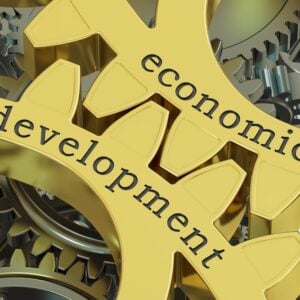Uganda’s economic growth remained strong, with real GDP rising from 6.1% to 6.8% between July 2024 and March 2025, driven largely by agriculture, manufacturing, construction, and household and government consumption, while the services sector experienced a slowdown. Inflation remained moderate at 3.5% in FY2024/2025, below the central bank’s 5% target, supported by stable food supply, easing global energy prices, exchange rate stability, and prudent monetary policy management.
The 25th edition of the Uganda Economic Update projects a positive medium-term outlook, with growth expected to accelerate to 10.4% in FY2026/2027 as oil production begins, before stabilizing around 6%. However, the report highlights risks including uncertainties in oil production timing and infrastructure completion, fluctuations in global oil prices, global supply chain disruptions, climate shocks, and slower implementation of domestic reforms such as revenue mobilization strategies.
Francisca Ayodeji (Ayo) Akala, World Bank Country Manager for Uganda, emphasized that rising public debt—approaching 53% of GDP—and increased election-cycle spending underscore the importance of minimizing unplanned expenditures and improving domestic revenue generation. With reductions in Overseas Development Assistance, strengthening domestic revenue is critical to maintain adequate public investment in essential social services like health and education.
The report highlights that Uganda’s tax system, while comprehensive, underperforms relative to Sub-Saharan Africa and the country’s medium-term targets. With a tax revenue-to-GDP ratio of just 14% in FY2024/2025, below the 15% threshold considered necessary for sustainable growth, reforms are needed to broaden the tax base, reduce unnecessary exemptions, and improve progressivity and equity. Implementing the suggested measures could increase tax revenues by 0.5% of GDP, moving closer to Vision 2040 targets.
Key recommendations include reviewing personal income tax brackets to adjust for inflation, increasing the exemption threshold from UGX 2.82 million to UGX 4.02 million per year, and introducing a 35% rate for incomes above UGX 5.82 million. Other measures involve strengthening taxation of high-net-worth individuals, revising corporate tax exemptions, targeting investment incentives more effectively, and engaging the private sector in tax policy to improve compliance and morale.
In addition, the report calls for enhanced efficiency in public spending and service delivery. This includes balancing investments in human capital and growth-enhancing activities, reducing wasteful expenditures such as large public administration budgets, addressing inefficiencies like staff absenteeism, improving public project execution, imposing strict guidelines on the creation of new administrative structures, and reforming local revenue frameworks to ensure local governments generate comparable revenue to peer countries. These measures are intended to reduce borrowing needs while sustaining public investment in social sectors and critical infrastructure.







